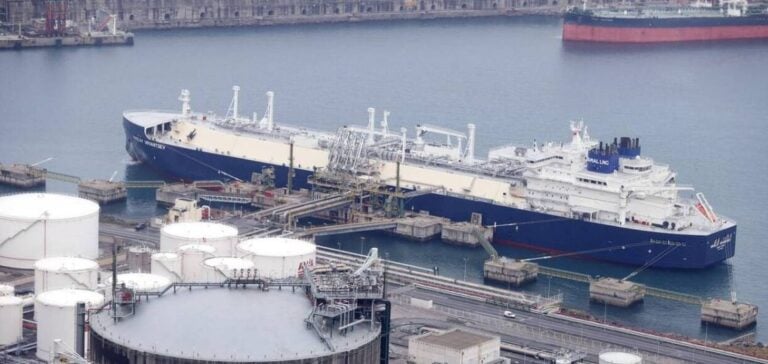The European Commissioner for Energy, Kadri Simson, assures us that the new European sanctions against Russian LNG transshipment will not affect Asian buyers.
The European Commission recently proposed a new package of sanctions targeting Russian liquefied natural gas (LNG) transshipment services through EU facilities. This measure, part of the 14th set of sanctions against Russia for its conflict with Ukraine, aims to restrict LNG reloads for third countries without affecting imports into the EU.
Kadri Simson, the European Commissioner for Energy, made it clear at a press conference in Tokyo that these sanctions will have no impact on Asian consumers. The LNG market is now liquid, and it is possible to replace volumes even if Russia cannot find alternative means of transport,” said Simson.
Sanctions and consequences for Russia
In addition to the transshipment ban, the sanctions package also proposes to ban new investments and the supply of goods, technologies and services by EU operators for the completion of ongoing LNG projects, such as Arctic LNG and Murmansk LNG, in line with the desire to put an end to Russian gas imports into Europe. Countries such as Belgium, Germany and France have asked for assessments of the potential impact of these measures, in particular whether they will harm the Russian economy more than the EU.
Simson assured that the Commission had provided its member states with all the data necessary to ensure that the proposal would not have a significant impact on world markets. “This only means that Russia will have to use alternative vessels to serve its third-country customers, which will be more costly for Russia but will not remove volumes from the world market,” she added.
Feedback and Next Steps
European diplomats are working to finalize the 14th sanctions package before Hungary takes over the EU presidency in July. Hungarian Prime Minister Viktor Orban, known for his links with Russian President Vladimir Putin, has previously tried to block aid to Ukraine and restrictions against Moscow.
Simson expressed optimism about Hungary’s cooperation in this context, despite its previous blocking efforts. “I have no doubt that Hungary is thinking very constructively, not least because it is a landlocked country and its economy will in no way be impacted by transshipment decisions,” she said.
The implications of these new sanctions are being closely scrutinized by global energy market players, as tensions between the EU and Russia continue to influence international economic and political dynamics.
The proposal for new EU sanctions against Russian LNG transshipment marks an important step in the EU’s strategy to isolate Russia economically while minimizing repercussions on global markets. Cooperation between member states will be crucial to ensure the effective implementation of these measures, while carefully monitoring their impact on energy supply chains.






















